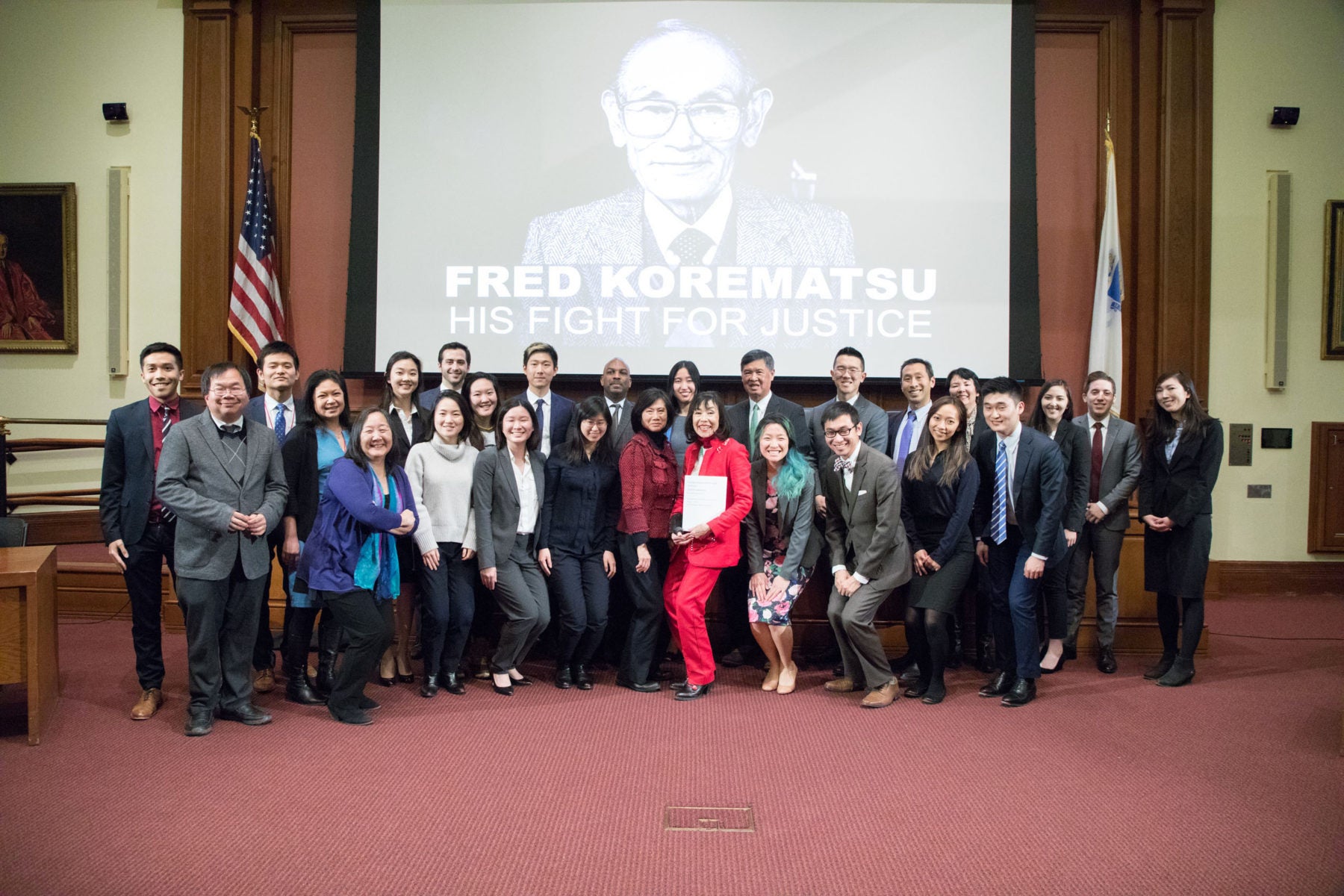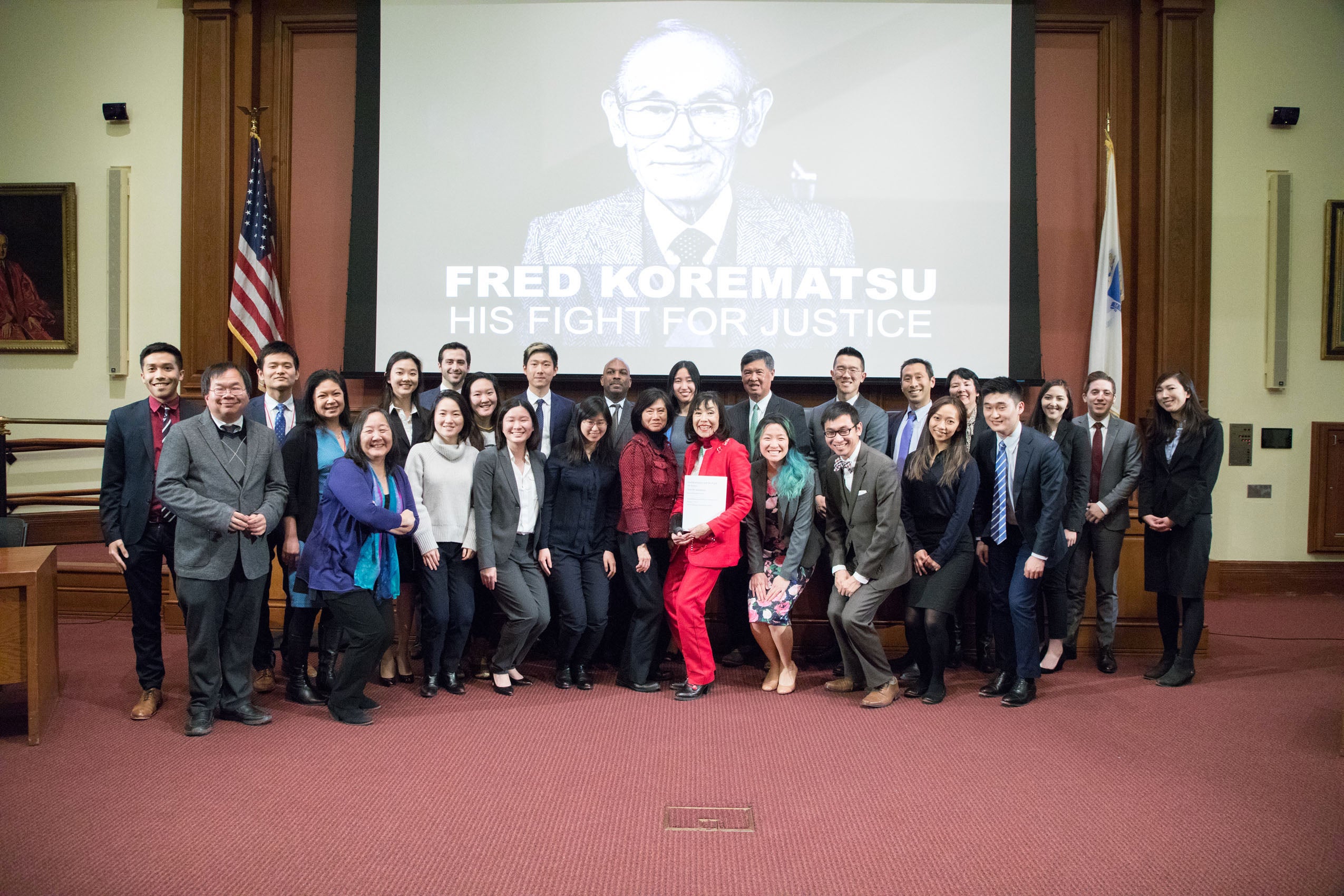As part of its recent law and policy conference, the Harvard Asian Pacific American Law Students Association (APALSA) performed “Fred Korematsu and His Fight for Justice,” a reenactment of the trial and events surrounding the 1944 Supreme Court case, Korematsu v. United States, where Fred Korematsu, a Japanese-American citizen, challenged the constitutionality of Executive Order 9066, which ordered the internment of Japanese Americans during World War II.
On February 19, 1942, President Franklin D. Roosevelt issued Executive Order 9066, uprooting some 120,000 Japanese-Americans, two-thirds of them American citizens, from their homes on the West Coast and forcing them into concentration camps. Fred Korematsu refused to go. He was arrested, and convicted of violating the Executive Order and related military proclamations. He appealed his conviction first to the Ninth Circuit and then to the Supreme Court. In 1944, the Supreme Court affirmed his conviction, upholding the Executive Order. In 1983, nearly forty years later, the federal court in San Francisco vacated Korematsu’s conviction after evidence was uncovered showing that the government had suppressed evidence that undermined its assertions before the Supreme Court. In 2018, the case was finally formally overruled in Trump v. Hawaii.
The theme for APALA’s conference this year was “milestones” and the Korematsu case was a fitting choice for this year’s reenactment: Fred Korematsu would have turned 100 on Jan 30, 2019 and his Supreme Court case turns 75 later this year. Weaving together photos, documents, and excerpts from court proceedings, the reenactment recounted all of the legal challenges Fred Korematsu faced in his fight for justice. “We felt that this issue was extremely timely because of the family separation policy at the border, which eerily resembles the WWII policy of concentration camps based on racial profiling,” said Shenghao Wang ’20, APALSA’s political chair.
Karen Korematsu, Fred’s daughter and the founder and executive director of the Fred T. Korematsu Institute, attended the event and played herself in the reenactment. “My father’s story is not just a Japanese American story nor a West Coast story, it is an American story about our ‘Civil Liberties and the Constitution’ and the dangers of racial and religious profiling, denial of due process of law and marginalization,” she said.
The reenactment scripts were developed by the Asian American Bar Association of New York (AABANY), under the leadership of Judge Denny Chin of U.S. Court of Appeals of the Second Circuit and Kathy Hirata Chin, senior counsel at Cadwalader, Wickersham & Taft.
In 1998, Korematsu received the Presidential Medal of Freedom, the nation’s highest civilian honor, from President Bill Clinton. Five years after Korematsu died in 2005, the state of California passed the Fred Korematsu Day bill, in 2010, making January 30 the first day in the U.S. named after an Asian American.

